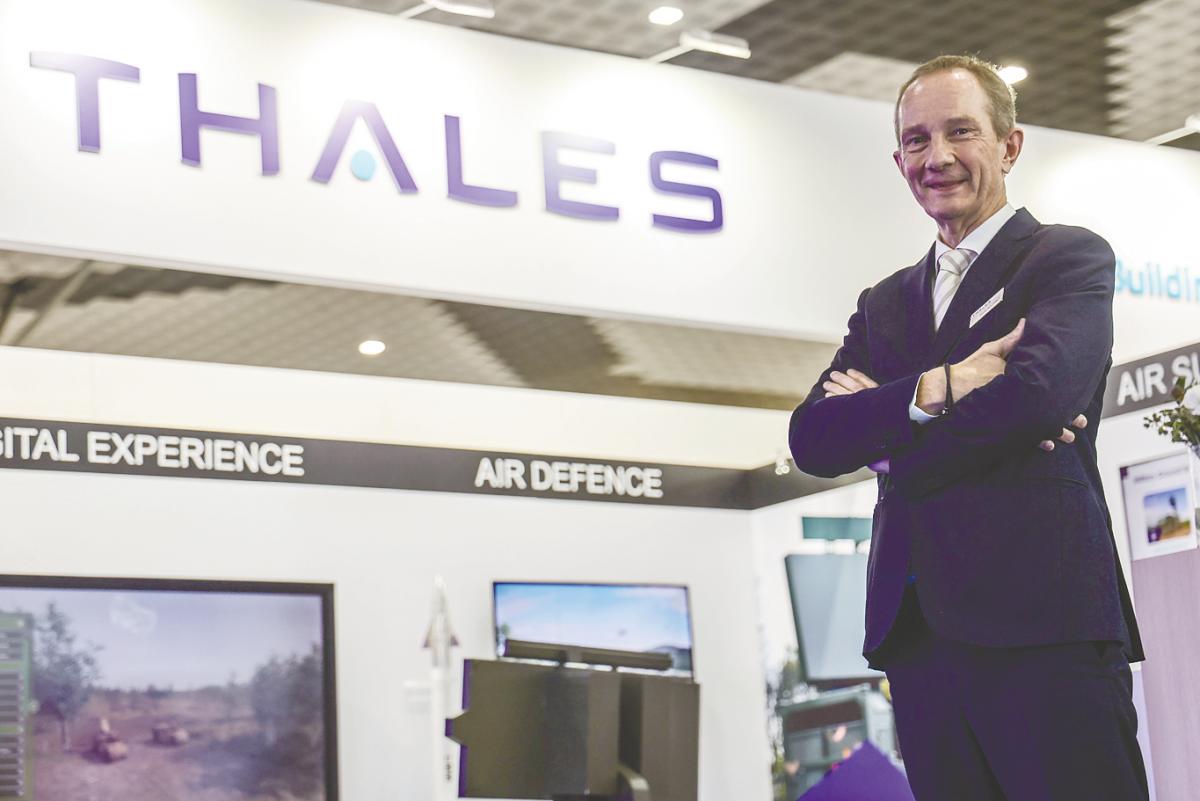LANGKAWI: Malaysia’s defence procurement landscape has evolved considerably in recent years, reflecting a shift towards more mature and sophisticated practices.
As a global player in advanced technologies for defence, aerospace, naval and ground capabilities, and cybersecurity, Thales Group welcomes this shift, saying the country’s maturing procurement processes creates opportunities for global firms such as Thales Group to offer modern, long-lasting solutions.
Thales Asia vice-president Nicolas Bouverot said there is growing demand in Malaysia for cutting-edge technology and advanced solutions.
“This aligns well with Thales’ strengths as a technology leader, providing value for money, high technology, and sophisticated solutions.
“Malaysia’s defence ecosystem is one of the most mature in Southeast Asia. Over the years, Malaysia has paid close attention to developing its defence ecosystem, laying the groundwork for a robust and resilient industry. This is the result of consistent, long-term investment in building and strengthening local capabilities,” Bouverot told SunBiz at the ongoing 17th Langkawi International Maritime and Aerospace Exhibition (Lima 2025).
He said one of the standout features of Malaysia’s procurement ecosystem is the Industrial Collaboration Programme – commonly known as the “offset policy” – which is integrated into the procurement of defence systems.
“Importantly, this policy is not limited to defence alone but extends to various other types of systems procured in Malaysia. It gives an incentive for localising activities, increasing Malaysia’s sovereignty over key assets while ensuring clear local benefits for Malaysia,” Bouverot said.
Yesterday, Thales was awarded a contract to supply two additional Ground Master 400 Alpha (GM400α) radars for the Royal Malaysian Air Force (RMAF), following the procurement of the first radar in 2023. This move is a strategic partnership to help Malaysia achieve air sovereignty.
The ceremony was held on the third day of Lima 2025 in the presence of Thales Malaysia country director Francois-Xavier Boutes and Malaysian Ministry of Defence secretary-general Datuk Lokman Hakim Ali, and witnessed by Defence Minister Datuk Seri Mohamed Khaled Nordin.
The award of two additional radars highlights the RMAF’s continued trust in Thales’ GM400α technology, known for its 515km range, reliability and rapid threat detection.
In addition to the radar procurement, Thales is enhancing Malaysia’s tactical communications for land forces and reinforcing its radio communications capabilities.
To this end, Thales signed a memorandum of understanding with Malaysia’s Advanced Defence Systems Sdn Bhd (ADS), to collaborate on radio projects. The pact, signed by ADS chairman Brig Gen (R) Datuk Abdul Hadi Abdul Razak and Bouverot, will see both parties working on the latest digital technologies for handheld radios and other tactical communications. .
Further, Thales witnessed the signing of a letter of agreement with Malaysian partner Novatis Resources Sdn Bhd to deliver a Reality-H AW139 Full Flight Simulator to be used for pilot training with the Royal Malaysian Police, its first engagement with the force.
Pilots of the Police Air Wing Training Academy and other government agencies, including the fire brigade and coast guard, can benefit from realistic and immersive training, customised to the Malaysian environment and terrain.
Bouverot said the Malaysian government’s key requirement is that any procurement includes technology transfer – a policy that Thales fully welcomes.
“We saw during the Covid-19 pandemic how challenging it can be for companies based far away to support their customers, especially when borders are closed, as they were then. But even before that, we had already realised that having a local presence and in-country capabilities is in the best interest of both us and our customers.
“Of course, it might not always be practical for smaller projects. However, having local capabilities becomes essential for substantial or mission-critical systems.
“In some cases, we establish our capabilities. In Malaysia, for instance, we operate four support service centres, including one in Kota Kinabalu dedicated to underwater technologies to support submarine operations.
“We have a centre in Lumut that supports surface ships, one in Pekan focused on vehicle systems, and another in Kuala Lumpur dedicated to communications. However, in other cases, we work closely with local partners. We provide training, transfer technology, and build their capabilities so they can carry out the work themselves,” Bouverot said.
Asked how Thales supports Malaysia’s ambition to take on a more proactive regional role in multilateral joint operations under the Asean framework, Nicolas said, “The products we supply to Malaysia are fully interoperable with systems used by other countries. In fact, many of our solutions are also deployed by Nato, where many interoperability exercises are conducted. So from a technological standpoint, the interoperability and the multi-country capabilities are there.
“Ultimately, however, it’s up to Malaysia to decide which partners it wants to work with and engage in joint operations, and at that strategic level, our role is more limited.”
Bouverot said Malaysia is one of Thales’ key Asian markets, with a team of over 100 people based in the country.
While the primary focus is serving the Malaysian market, several team members also hold regional roles.
Thales aims to leverage Malaysia’s capabilities further to support local and regional operations. It is actively exploring ways to expand its presence and plans to increase investments. This includes the upcoming establishment of a centre of excellence for radars in collaboration with Weststar Group.









